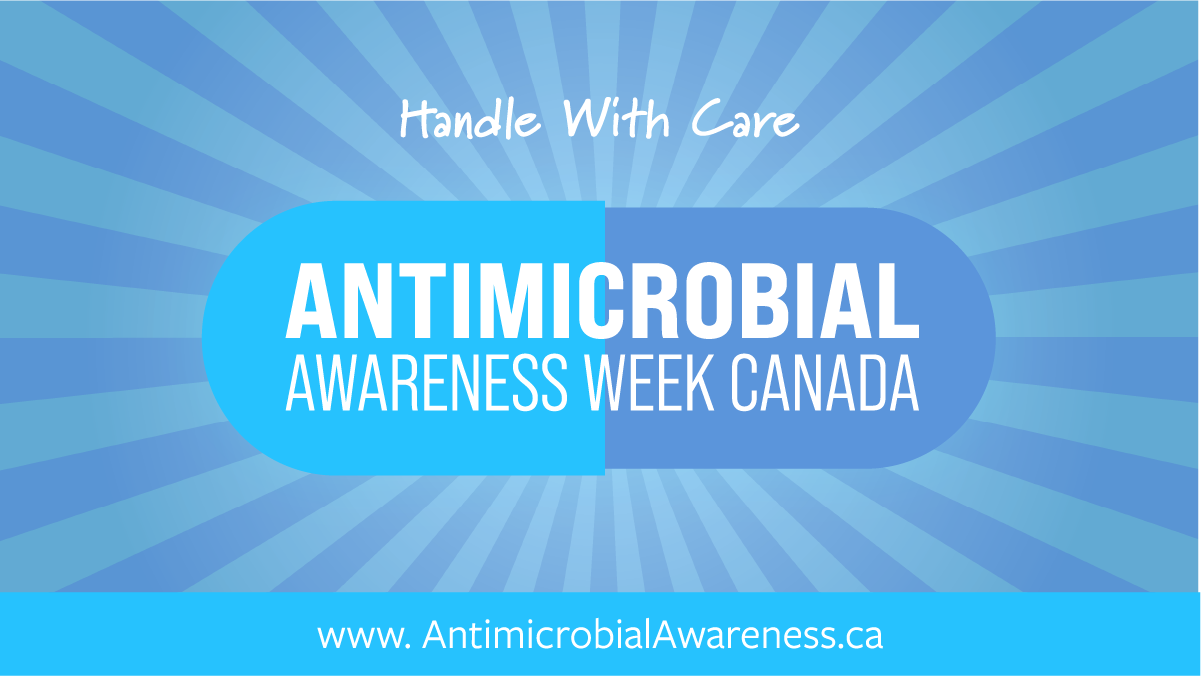Antimicrobial Awareness Week (formerly Antibiotic Awareness Week), November 18 – 24, promotes informed, careful use of these life-saving medicines to help keep them working for future generations.
Canadian buildings and landmarks are sparking up in light blue on Thursday, November 24th, to mark the close of World Antimicrobial Awareness Week. The World Health Organization (WHO) has declared antimicrobial resistance (AMR) as one of the top 10 global health threats.
This narrative review explores how social sciences research may contribute to our understanding of antimicrobial resistance (AMR) and antibiotic prescribing in human health and inform mitigation strategies. The review identifies over 80 examples of social sciences research related to AMR.
The authors conducted a review of peer-review literature and analyzed terminology usage. The intent of this document is to provide public health practitioners and policy makers across disciplines with a lexicon that can lead to consensus.
There have been important expansions within existing national surveillance programs (Canadian Nosocomial Infection Surveillance Program and the Canadian Integrated Program for AMR Surveillance), with new data integration and reporting by the Canadian AMR Surveillance System. However, important gaps in the AMR/AMU surveillance “patchwork” in Canada must be addressed to make it a comprehensive, integrated, One Health…
This webinar provides an overview to public health personnel on AMR surveillance in Canada and opportunities to use surveillance data to support public health planning, decision-making and response.
This February 2019 presentation explored ethical considerations of appropriate antibiotic prescribing of public health, primary care and specialist physicians, where there may be perceived tension between duty to individual patients and duty to avoid overuse of antimicrobials.
COMMENTARY: Yoav Keynan, MD and NCCID’s Scientific Lead COMMENT According to the WHO 2017 report, in 2016 globally, there were 600,000 new cases of tuberculosis with resistance to rifampicin, the most effective first-line drug, of which 490,000 cases had multidrug-resistant TB (MDR-TB), defined as resistance to rifampicin and isoniazid. Almost half (47%) of these cases…
Worldwide, antimicrobial resistance has emerged as a serious public health threat. Preserving the ability to use antimicrobials effectively for the future will require far-reaching responses. In this case study, we describe the processes and structures put in place by Alberta Health Services (AHS) to support and maintain coordinated antimicrobial stewardship programs in the province.
REGISTRATION CLOSED A copy of this webinar is available upon request. Please contact NCCID Project Manager Harpa Isfeld-Kiely to learn more, or get in touch with our Centre via our general inbox. Date: March 9, 2017 Description Presented by: The National Collaborating Centre for Infectious Diseases (NCCID) and Do Bugs Need Drugs? Alberta Health Services This…
Roadmap for improving antimicrobial stewardship (AMS) in Canada and lays out a series of 10 areas for a national Action Plan on antimicrobial stewardship that focuses on AMS in the human health context, while recognizing the importance of action in agriculture and animal health as part of a “One Health” approach to AMS.
Report from June 2016 roundtable gathering over 50 experts, key influencers and stakeholders in the fields of antimicrobial stewardship and resistance to begin developing a Canadian multi-sectoral Antimicrobial Stewardship Action Plan, spanning hospital, long-term care and community settings.


